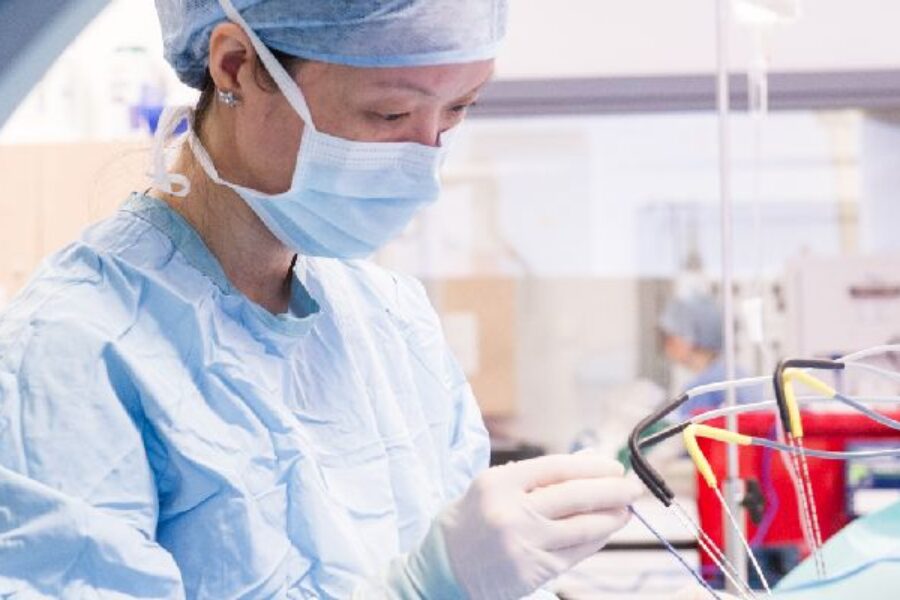
On this page
The Leeds Cancer Centre strives to deliver the highest quality treatment, care and support to those who use our services and it is the role of the Cancer Board to facilitate this.
For general enquiries we can be contacted at leedsth-tr.leadcancerteam@nhs.net
Our vision
Our vision is to deliver the highest quality specialist and integrated cancer care to the people of Leeds and the Yorkshire region by championing the skills, expertise and commitment of all who work within the Leeds Cancer Centre.
More information about the Cancer Strategy for the City of Leeds can be found here soon. This has been developed in collaboration with other partner organisations.
Our services
Our diagnostic, treatment and support services enable us to provide the most advanced treatment, care and support for those affected by cancer.
The services are managed by the Clinical Service management teams, supported by the Lead Cancer Team, and are located at all our hospital sites including St James’s, Leeds General Infirmary, Wharfedale, Seacroft, Chapel Allerton and the Dental Hospital.
When possible cancer symptoms are first recognised, there are well established rapid access referral pathways to the correct specialist team for investigations.
Multi-disciplinary teams
Every person with a suspected or confirmed cancer is cared for by a team of healthcare professionals known as the multi-disciplinary team (MDT).
All MDTs include:
- Cancer nurse specialists – who provide expertise in supporting patients and carers through the provision of information, guiding through tests, managing symptoms and are point of contact for patients
- Physicians – who have an expertise in the diagnosis and medical intervention of specific diseases
- Radiologists – who specialise in the interpretation and recommendation of scans and may also take biopsies
- Pathologists – who examine the tissue and cells removed during a biopsy or surgery
- Surgeons – who perform operations
- Oncologists – who specialise in anti-cancer treatment including chemotherapy and radiotherapy
- Research Nurses – who can discuss the option of taking part in clinical trials
Some MDTs also include dieticians, physiotherapists, speech and language therapists, occupational therapists or radiographers.
There are other healthcare professionals who may be involved in your care including your GP, palliative care team, district nurse, occupational therapist, social worker or clinical psychologist.
Our Research
Contact:
0113 2067935 for the Leeds Clinical Trial team
0113 3928191 for Paediatric Cancers
0113 2068337 for Blood (Haematological) Cancers
The Leeds Cancer Centre’s research strategy is to ensure every patient has the opportunity to participate in a research study where appropriate in their clinical care. This is achieved by all our clinicians being involved in supporting or leading national and international programmes of research and clinical trials which are aimed at improving patient care through new innovative treatments and providing better outcomes for patients. We undertake research across every cancer, helping to ensure that we are at the cutting edge of cancer treatment innovation in Leeds.
We also host one of the UK’s leading clinical trials research units which includes the Yorkshire Centre for Health Informatics (YCHI). We work with many academic collaborators in the UK and internationally, as well as with pharmaceutical companies and industrial partners devising new technologies, medical devices and drug development.
There are many different types of clinical trials that are available at the Centre which means that most patients will have an opportunity to consider participating in research.
The different types of trials include:
- Patient satisfaction surveys
- Quality of life studies
- Treatment intervention trials
- Donation of blood or cancer tissue at the time of surgery, biopsy or blood test monitoring.
The clinical team always discuss these with patients where appropriate. It is also possible to help contribute to research through donation of blood or tumour tissue during routine procedures such as surgery, biopsy or blood test monitoring. The donation of these samples helps our scientists to develop new knowledge about the behaviour of cancer, detecting cancer at an earlier stage and improving patient care.
We want every patient to have the opportunity to participate in a research study. Patients can be involved with assisting us in the research programme – please do discuss this with your clinical care team.
We are also part of DATA-CAN, a UK-wide partnership that aims to unlock the power of health data to improve cancer care. Health data collected by the NHS and other organisations is not always quick and easy for researchers to find, access and analyse. We are working in partnership with patients and the public to make this high-quality health data more accessible for cancer researchers, clinicians and other health professionals, so it is easier to conduct research into new treatments, identify opportunities for earlier diagnosis and make improvements in care for people affected by cancer.
There are various ways in finding information about clinical trials and the links below will help in this
The UK Clinical Trials Gateway has a search option of clinical trials open in the UK
The US National Library of Medicine has a search option of clinical trials open around the world
Haematological (Blood) Cancers
Children`s and Adolescent Oncology and Haematology
Teenage and Young Adult Cancers
Late effects of cancer treatment team
Leeds Clinical Research Facility
Experimental Cancer Medical Centre
Our Partnerships
Our partnerships help us to continue to develop world class healthcare for all of our patients.
We work in partnership with:
- Other hospitals
- Leeds Hospitals Charity
- Charities including Cancer Research UK, Macmillan Cancer Support, Maggie`s Centres, other charities and research organisations, to pioneer new ways of treating cancer, promoting excellence in care and enhancing the experience of those who use our services
- Industry, including pharmaceutical and equipment manufacturers
- Leeds City Council to ensure care for those who are leaving hospital and need support in the community
- Universities to train medical, nursing, dental and other students
- NHS England and other organisations providing a range of services from ambulance transport to the supplies we need
- Private healthcare and other non-NHS care providers